
Lupus & Coronavirus (COVID-19)
 March 06th, 2020
March 06th, 2020 Nakita Cambow
Nakita Cambow Latest News
Latest News 0 Comments
0 Comments
UPDATED (06/04/2022)
The following article has been updated to reflect the latest guidance. The situation is likely to change further. Please check back occasionally for the latest updates.
If you are in crisis, please contact LUPUS UK by calling 01708 731251 (Monday to Friday – 9am to 5pm) or email headoffice@lupusuk.org.uk. Please note; if you have an urgent medical crisis you should contact 999 or 111 as appropriate.
People with lupus often have very different symptoms from each other and we cannot give any more specific details on a case-by-case basis at this time. We appreciate that some guidance may therefore be very general.
 Latest Updates
Latest Updates
People who are at an increased risk from COVID-19 infection are being advised to continue taking extra precautions, if they wish. These include:
- Avoid meeting with someone who has tested positive for COVID-19 (and anyone in their household) until 10 days after they received a positive test. Try to avoid people who have symptoms of COVID-19 or other respiratory infections and have a temperature or feel unwell.
- If you have visitors to your home, ventilate your home by opening windows and doors to let fresh air in and consider asking visitors to exercise precautionary behaviours such as keeping their distance. Tests are no longer free for the general public, but you can ask visitors to take a rapid lateral flow test before visiting if you wish. You might also consider asking them to wear a face covering and want to wear a face covering yourself.
- If it feels right for you, work from home if you can. If you cannot work from home, speak to your employer about what arrangements they can make to reduce your risk. It may be that you are entitled to a Reasonable Adjustment under the Equality Act. See Public health principles for reducing the spread of COVID-19 and other respiratory infections in the workplace.
- When out and about, keep social distancing if that feels right for you, and consider reducing the time you spend in enclosed crowded spaces. Wash your hands regularly and avoid touching your face.
- Consider continuing to wear a face covering in crowded public spaces. Although face coverings are primarily worn to protect others, because they cover the nose and mouth, which are the main sources of emission of the virus that causes COVID-19 infection, they can also provide some limited protection to the wearer.
The Government’s plan for “Living with COVID-19” has come into full-effect in England.
 Self-isolation is no longer legally required following a positive COVID-19 test, although the guidance remains to help reduce the spread of the virus.
Self-isolation is no longer legally required following a positive COVID-19 test, although the guidance remains to help reduce the spread of the virus.- COVID-19 rules for Statutory Sick Pay (SSP) have been ended for the whole of the UK, meaning it will not be available from the first day of sickness.
- Free COVID-19 tests are no longer available for most people. Free lateral flow tests (LFTs) should still be available for people with health conditions who are eligible for the COVID-19 treatments, people going into hospital for surgery or a procedure, and people working in the NHS or in social care.
The Scottish Government’s strategic framework for managing the virus will shortly make additional changes to COVID-19 testing:
 From 18th April: Free LFTs will no longer be available for most people. They should still be available for people with health conditions who are eligible for the COVID-19 treatments, people going into hospital for surgery or a procedure, and people working in the NHS or in social care.
From 18th April: Free LFTs will no longer be available for most people. They should still be available for people with health conditions who are eligible for the COVID-19 treatments, people going into hospital for surgery or a procedure, and people working in the NHS or in social care.- Until 30th April: People with COVID-19 symptoms should self-isolate and get a PCR test. Vaccinated close contacts of positive cases should do daily LFTs for seven days
- From 1 May: Most people with COVID-19 symptoms won’t need to test (if you are eligible for COVID-19 treatments, you should take an LFT if you develop symptoms). Also from this date, physical test sites will close and contact tracing will end.
The Welsh Government’s “Long-term plan to live with coronavirus safely” is coming into effect in stages:
 From 28th March: The use of PCR tests by the general public has been stopped. LFTs are available online for free, but only for testing people with symptoms. Self-isolation is no longer a legal requirement but it is advised for those with symptoms who have a positive test result. Contract tracing will continue.
From 28th March: The use of PCR tests by the general public has been stopped. LFTs are available online for free, but only for testing people with symptoms. Self-isolation is no longer a legal requirement but it is advised for those with symptoms who have a positive test result. Contract tracing will continue.- From the end of June: LFTs will no longer be available. Self-isolation guidance will be changed to advise people with symptoms to take additional precautions, such as staying at home if possible. Contract tracing and self-isolation support payments will end.
Northern Ireland plan to make changes to COVID-19 testing from 22nd April:
The full range of changes to take effect from 22 April in Northern Ireland are as follows;-
 PCR testing will no longer be recommended or available for most people with symptoms. The PCR home ordering service will remain available for those who are eligible for COVID-19 treatments.
PCR testing will no longer be recommended or available for most people with symptoms. The PCR home ordering service will remain available for those who are eligible for COVID-19 treatments.- Publicly accessible COVID-19 testing sites will close. Local Health and Social Care Trusts will continue to provide PCR testing to support clinical care.
- Those with symptoms will be advised to use lateral flow tests (LFTs) instead of booking a PCR. This will be kept under review and could remain in place up to the end of June.
- Widespread asymptomatic LFT testing will cease. Free LFTs will only be made available for routine asymptomatic testing for those living, working and visiting health and social care settings, including hospitals and care homes.
- Routine population contact tracing will be phased out between mid-April and the end of June.
COVID-19 treatments are now available through the NHS for those who are most at risk of severe illness.
You can read more about this HERE.
Contents
Click on any of the below to be taken to the relevant section:
-
- What is coronavirus (COVID-19)?
- Am I at risk because of my lupus?
- How does COVID-19 vaccination affect my risk?
- Are children with lupus at risk?
- COVID-19 vaccines
- What precautionary measures should I be taking?
- Should I be going to work?
- What do I do if I suspect I have symptoms of coronavirus?
- Treatment for coronavirus
- What about hydroxychloroquine?
- Should I stop taking my lupus medication(s)?
- Should I still attend medical appointments?
- Should I be taking vitamin D supplements?
- Should I wear a face covering?
- Looking after your wellbeing
- Further reading
What is coronavirus (COVID-19)?
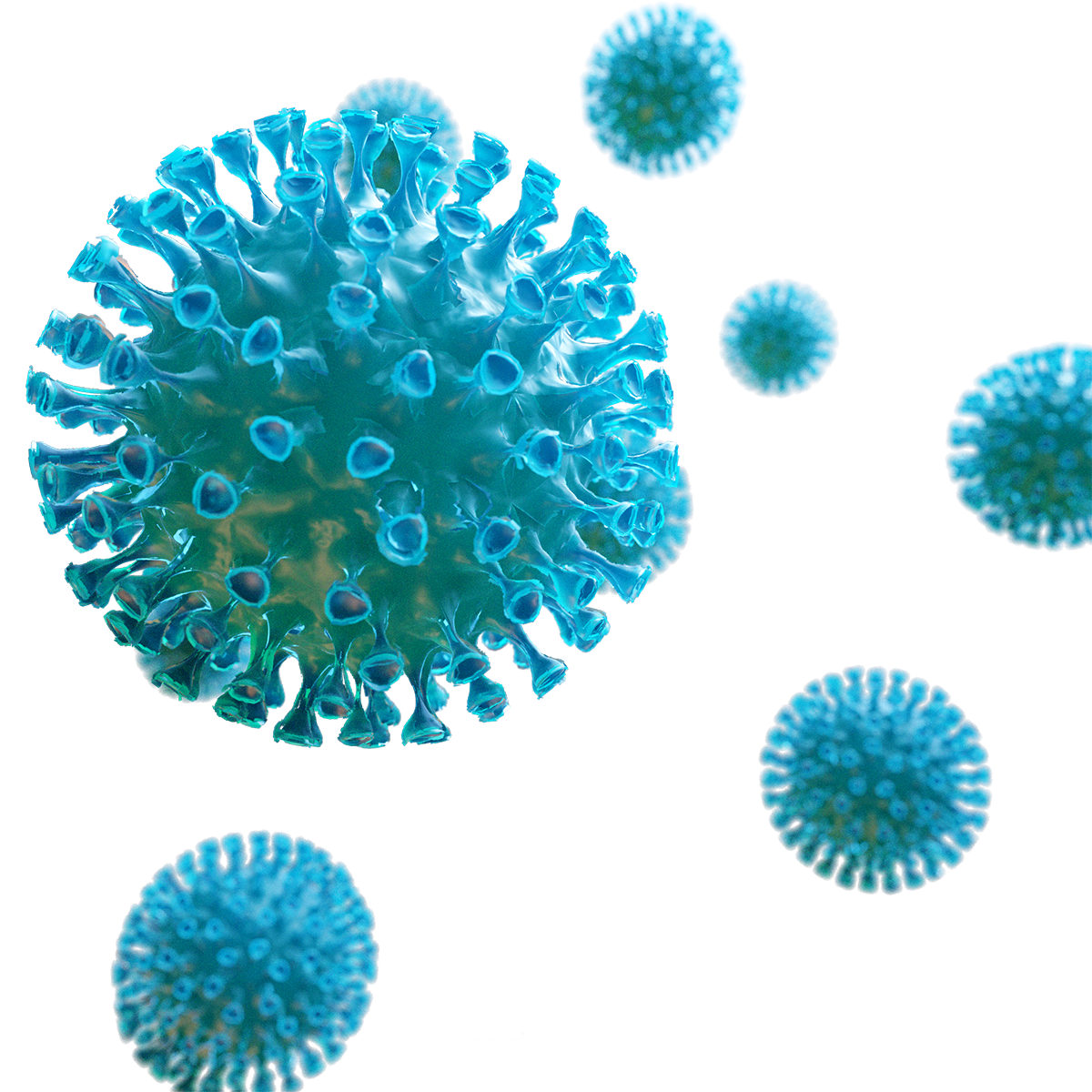 A coronavirus is a type of virus. As a group, coronaviruses are common across the world, with some causing the common cold. Typical symptoms of coronavirus include fever and a cough that may progress to a severe pneumonia causing shortness of breath and breathing difficulties. COVID-19 is a new strain of coronavirus.
A coronavirus is a type of virus. As a group, coronaviruses are common across the world, with some causing the common cold. Typical symptoms of coronavirus include fever and a cough that may progress to a severe pneumonia causing shortness of breath and breathing difficulties. COVID-19 is a new strain of coronavirus.
All viruses mutate. These tiny genetic changes happen as the virus makes new copies of itself to spread and thrive. Most are inconsequential, and a few can even be harmful to the virus’ survival, but some can make it more infectious or threatening. There are now many thousands of different versions, or variants, of the COVID-19 virus circulating. Experts’ concerns focus on a small number of these.
At this time, there is no evidence to indicate that any common variant strains are associated with more severe disease from infection. There is also not sufficient evidence to suggest that the COVID-19 vaccines being administered in the UK will be ineffective against existing common variant strains.
How is it spread?
The virus spreads mainly between people who are in close contact with one another (within about 6 feet or 2 metres) through water droplets produced when an infected person coughs or sneezes. These droplets can land in the eyes, mouths or noses of people who are nearby or possibly be breathed into the lungs.
A person can get the coronavirus (COVID-19) by touching a surface or object that has the virus on it and then touching their own mouth, nose, or eyes, but this is not thought to be the main way the virus spreads.
What are the signs and symptoms of coronavirus?
Symptoms of COVID-19 may develop days after the infection starts and evidence suggests someone who feels well can spread the virus during this time.
The main symptoms of coronavirus are:
- High temperature
this means you feel hot to touch on your chest or back (you do not need to measure your temperature). - New, continuous cough
this means coughing a lot for more than an hour, or three or more coughing episodes in 24 hours (if you usually have a cough, it may be worse than usual). - Loss or change to your sense of smell or taste
this means you’ve noticed you cannot smell or taste anything, or things smell or taste different to normal - Shortness of breath
- Feeling tired or exhausted
- An aching body
- A headache
- A sore throat
- A blocked or runny nose
- Loss of appetite
- Diarrhoea
- Feeling sick or being sick
Most people with coronavirus have at least one of these symptoms.
In more severe cases COVID-19 can cause problems such as shortness of breath and pneumonia. Severe COVID-19 is much more likely if you are older or have any of the health conditions that make you vulnerable.
Am I at risk because of my lupus?
 There are a range of characteristics that can put someone at greater risk of severe disease from the virus. The groups at most risk include older adults and people of any age who have certain underlying medical conditions.
There are a range of characteristics that can put someone at greater risk of severe disease from the virus. The groups at most risk include older adults and people of any age who have certain underlying medical conditions.
Systemic lupus erythematosus (SLE or lupus) is a disease which can vary a lot in how it presents and the types of treatment needed. As such, some people with lupus are likely to be more vulnerable to the virus than others. However, the COVID-19 vaccination programme has significantly reduced the risk of severe illness for most people. You can read more about this further below.
During the early stages of the pandemic in the UK, The British Society for Rheumatology (BSR) produced a risk stratification guide to help doctors and nurses divide people with lupus into groups with different levels of risk. The risk level is split into three groups:
1) High Risk (also referred to as ‘Clinically Extremely Vulnerable’):
You would be considered as highest risk if;
- Your treatment includes steroids (doses of more than 20mg daily, or less but in combination with other drugs)
- Your treatment includes cyclophosphamide in the last six months
- Your treatment includes a combination of multiple immunosuppressive* drugs and biologic** medications and you also have another risk factor such as heart disease, lung disease, kidney disease, diabetes or are aged over 70 years.
- Your disease is poorly controlled and/or you’ve had a recent flare.
- You are on dialysis or have chronic kidney disease (stage 5).
2) Moderate Risk (also referred to as ‘increased risk’, ‘at risk’ or ‘vulnerable’):
You would be considered at increased risk if;
- Your disease is well-controlled with a single biologic** or immunosuppressive* therapy but you are not on steroids and you are under 70 years of age and do not have any additional health problems.
- Your disease is well controlled with only hydroxychloroquine but you also have another risk factor such as heart disease, lung disease, kidney disease, diabetes or are aged over 70 years.
3) Normal Risk:
You would be considered at normal risk if;
- Your disease is well controlled and you are on no long-term medication, except from hydroxychloroquine.
- You are under 70 years of age and you do not have any additional health problems.
* Immunosuppressive medications include: Azathioprine, Leflunomide, Methotrexate, Mycophenolate (mycophenolate mofetil or mycophenolic acid), ciclosporin, Tacrolimus, Sirolimus. It does NOT include hydroxychloroquine or sulphasalazine, either alone or in combination.
** Biologic/monocolonal includes: Rituximab within last 12 months; all anti-TNF drugs (etanercept, adalimumab, infliximab, golimumab, certolizumab and biosimilar variants of all of these); Tociluzimab; Abatacept; Belimumab; Anakinra; Seukinumab; Ixekizumab; Ustekinumab; Sarilumumab; Canakinumab
Due to the complexity of lupus and the range of treatment options, not all individuals necessarily belonged neatly into one of these risk categories. In these circumstances the individual’s consultant would carefully consider which risk group was most appropriate.
Other risk factors:
On Tuesday 16th February 2021, a further 1.7 million people in England were assessed to be “Clinically Extremely Vulnerable” and added to the Shielded Patient List. This was the result of University of Oxford’s QCovid® risk prediction model to identify additional people who might be at high risk from coronavirus infection. You can learn more about the QCovid® model, HERE.
The COVID-19 Population Risk Assessment, which uses the QCovid® model, combines a range of factors such as:
- Age
- Sex registered at birth
- Ethnicity
- Body mass index (BMI)
- Specific health conditions
- Treatments
What about people with discoid lupus, sub-acute cutaneous lupus, mixed connective tissue disease (MCTD) or undifferentiated connective tissue disease (UCTD)?
If you do not have a diagnosis of SLE you could check whether you meet any of the other criteria above. If you would not usually be invited for an annual flu vaccine, are not on immunosuppressive treatment and do not have a history of lung symptoms then you may be in the ‘normal risk’ group and advised to follow the same guidance as the rest of the population. If you are uncertain we encourage you to check with your medical team.
How does COVID-19 vaccination affect my risk?
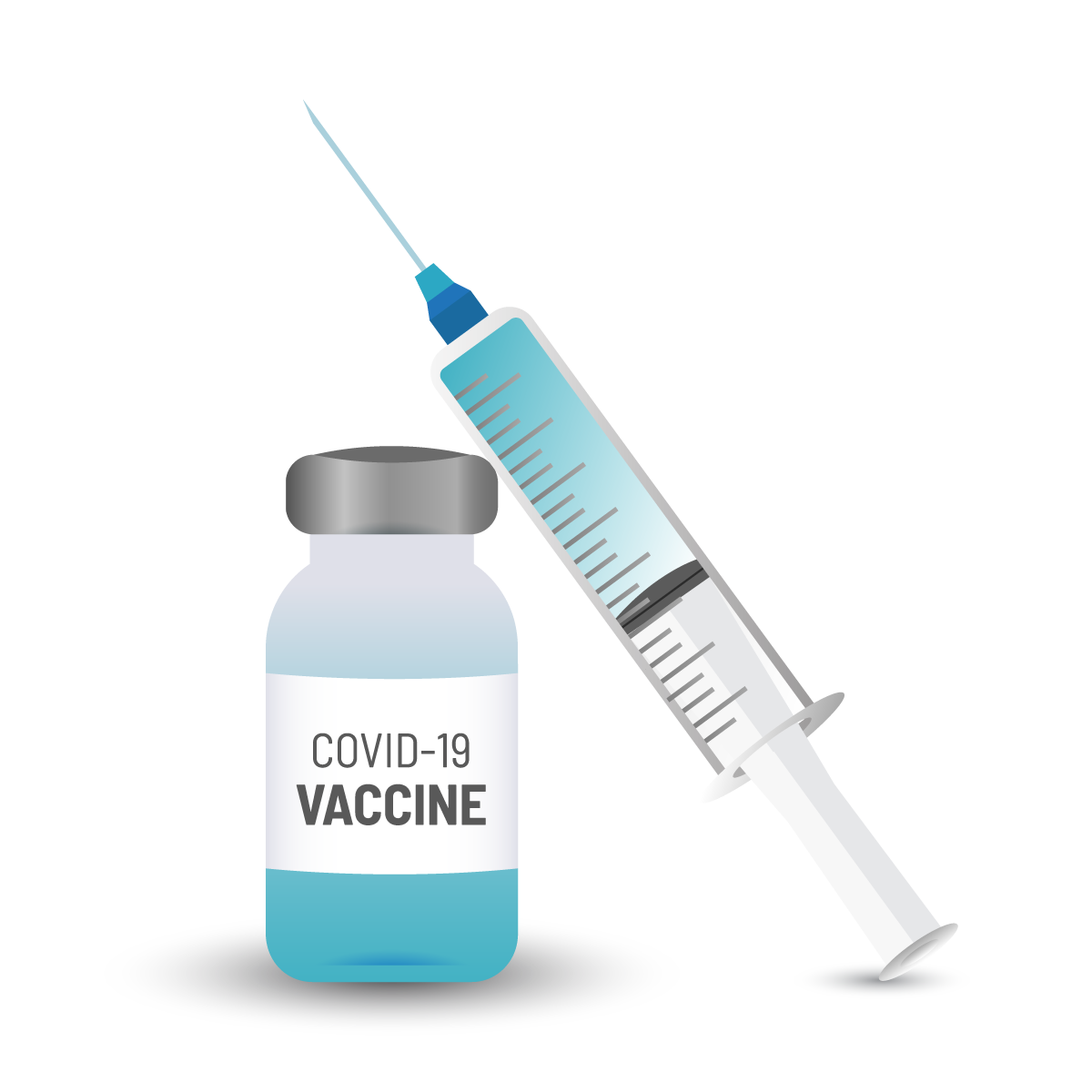 Adults who were considered to be at an increased risk of serious disease from COVID-19 were prioritised for vaccination in the UK. All adults at increased risk should have been offered all recommended doses of COVID-19 vaccine.
Adults who were considered to be at an increased risk of serious disease from COVID-19 were prioritised for vaccination in the UK. All adults at increased risk should have been offered all recommended doses of COVID-19 vaccine.
Evidence indicates that the COVID-19 vaccines provide high levels of protection against serious disease and death. Research studies are continuing so that we learn more about the role of vaccines in preventing COVID-19 related serious illness and death in people living with lupus. These findings will be particularly important for people on immunosuppressive treatments who may have had a weakened response to the vaccines.
If you have not yet accepted your invitation for a COVID-19 vaccine, it is generally recommended that people with lupus have it.
You can book your appointment online:
You can read more about lupus and COVID-19 vaccination in our article, HERE.
Are children with lupus at risk?
 On the 6th July 2020 the Government announced that the majority of children considered “clinically extremely vulnerable” to COVID-19 will be able to be removed from the shielded patient list. This change to guidance came following evidence from paediatric clinicians showing that COVID-19 poses a low risk to most children and young people.
On the 6th July 2020 the Government announced that the majority of children considered “clinically extremely vulnerable” to COVID-19 will be able to be removed from the shielded patient list. This change to guidance came following evidence from paediatric clinicians showing that COVID-19 poses a low risk to most children and young people.
Children should only be removed from the shielded patient list by their GP or specialist doctor following consultation with the child and their family. Specialists and GPs were asked to contact children and their families to discuss this over the summer.
COVID-19 vaccines
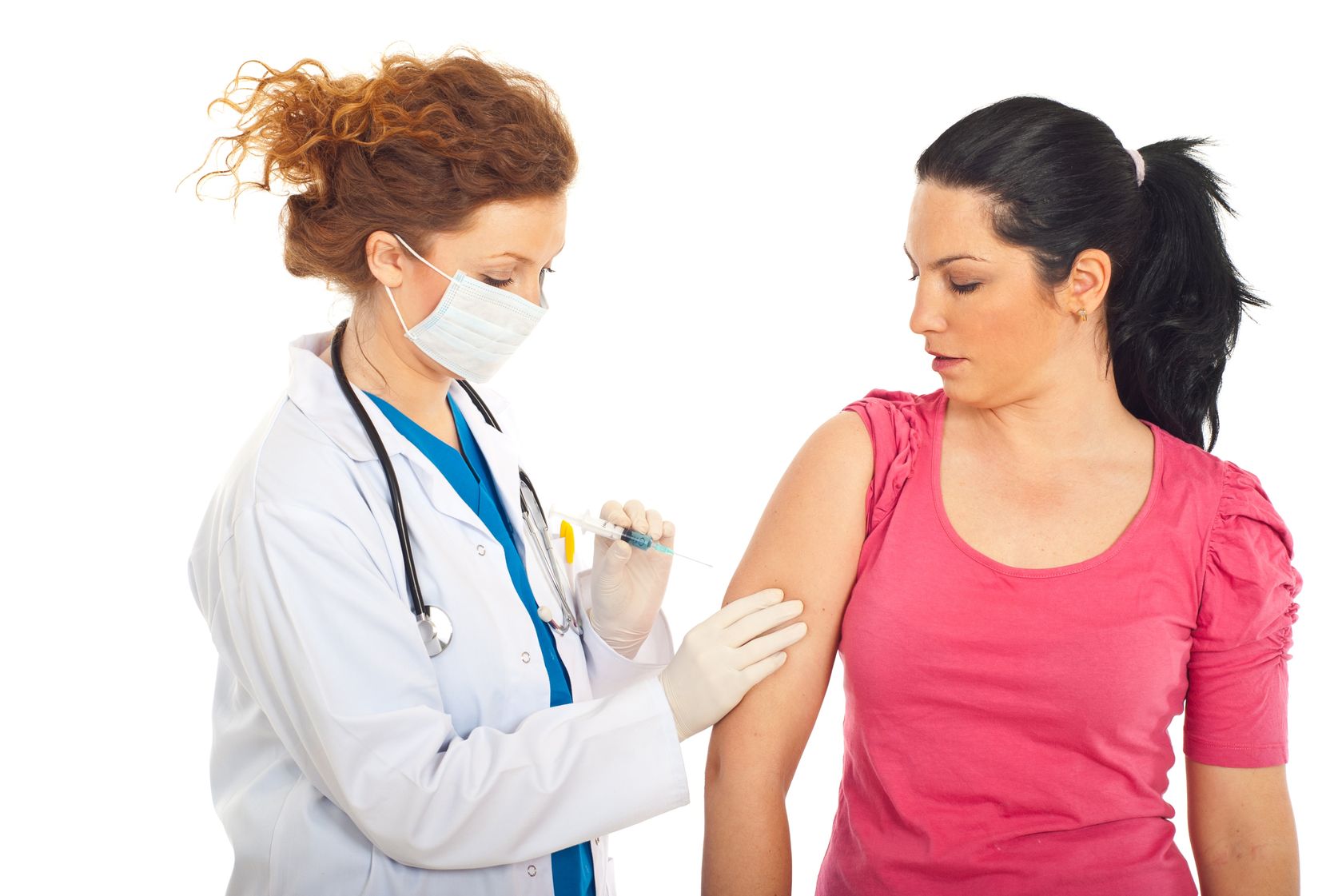 All adults in the UK have now been invited for COVID-19 vaccination. If you have not yet accepted your invitation, it is generally recommended that people with lupus should have the vaccine.
All adults in the UK have now been invited for COVID-19 vaccination. If you have not yet accepted your invitation, it is generally recommended that people with lupus should have the vaccine.
We have created a separate article about COVID-19 vaccination which will be updated regularly as more information and guidance becomes available.
GO TO LUPUS AND COVID-19 VACCINATION ARTICLE
What precautionary measures should I be taking?
England, Wales, Scotland and Northern Ireland each have a different approach to controlling the spread of the virus and therefore have different rules and guidelines.
Links to official guidance:
England
National Guidance & Clinically Extremely Vulnerable Guidance & Weakened Immune System Guidance
Wales
National Guidance & Clinically Extremely Vulnerable Guidance
Scotland
National Guidance & Highest Risk Guidance
Northern Ireland
National Guidance & Clinically Extremely Vulnerable Guidance
The guidance issued by each nation is advisory and therefore you are recommended to take the measures you are able to, that allow you to feel secure. If you have received personal advice which is different from national guidance, you should follow the advice of your own doctor, including on precautions you should take.
Whilst the COVID-19 vaccination programme has significantly reduced the risk of severe illness for many people previously considered “clinically extremely vulnerable”, there are still some people at an increased risk. Those who remain at an increased risk are predominantly those with suppressed/compromised immune systems who may have lower levels of protection from the vaccines. People who are at an increased risk from COVID-19 infection are being advised to continue taking extra precautions, if they wish. These include:
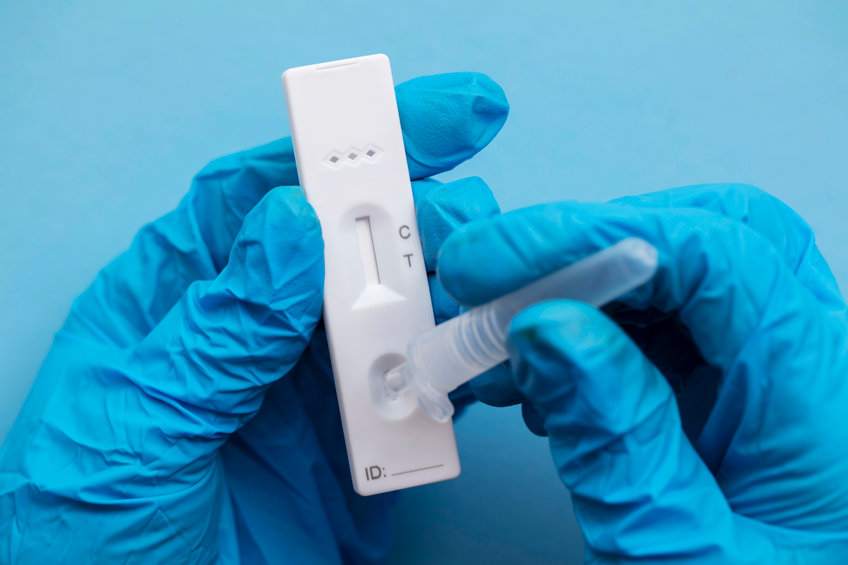 Avoid meeting with someone who has tested positive for COVID-19 (and anyone in their household) until 10 days after they received a positive test. Try to avoid people who have symptoms of COVID-19 or other respiratory infections and have a temperature or feel unwell.
Avoid meeting with someone who has tested positive for COVID-19 (and anyone in their household) until 10 days after they received a positive test. Try to avoid people who have symptoms of COVID-19 or other respiratory infections and have a temperature or feel unwell.- If you have visitors to your home, ventilate your home by opening windows and doors to let fresh air in and consider asking visitors to exercise precautionary behaviours such as keeping their distance. Tests are no longer free for the general public, but you can ask visitors to take a rapid lateral flow test before visiting if you wish. You might also consider asking them to wear a face covering and want to wear a face covering yourself.
- If it feels right for you, work from home if you can. If you cannot work from home, speak to your employer about what arrangements they can make to reduce your risk. It may be that you are entitled to a Reasonable Adjustment under the Equality Act. See Public health principles for reducing the spread of COVID-19 and other respiratory infections in the workplace.
- When out and about, keep social distancing if that feels right for you, and consider reducing the time you spend in enclosed crowded spaces. Wash your hands regularly and avoid touching your face.
- Consider continuing to wear a face covering in crowded public spaces. Although face coverings are primarily worn to protect others, because they cover the nose and mouth, which are the main sources of emission of the virus that causes COVID-19 infection, they can also provide some limited protection to the wearer.
Distance Aware Initiative
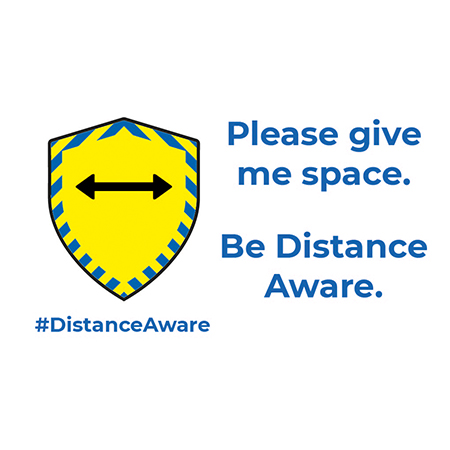 “Distance Aware” and “Please give me space” schemes have been launched with the aim of enabling individuals and organisations to politely prompt ongoing distancing and respect of individual social space. It is hoped it will give people who are at increased risk from COVID-19 more confidence in public spaces.
“Distance Aware” and “Please give me space” schemes have been launched with the aim of enabling individuals and organisations to politely prompt ongoing distancing and respect of individual social space. It is hoped it will give people who are at increased risk from COVID-19 more confidence in public spaces.
You can learn more about these schemes and how to obtain badges and lanyards HERE.
 If you have been advised that you are still at high risk or take immunosuppressant medications for your lupus (meaning you may be less protected from the vaccines), it is recommended that you continue to work from home, where possible. Your employer should take measures to assist you to continue working from home, if this is possible. If you need adjustments to be able to work from home you can apply for Access to Work. Access to Work will provide support for disability-related extra costs of working that are beyond standard reasonable adjustments an employer must provide. Where work cannot be done from home, the government have set out tailored guidelines for employers about how to make the workplace safe (“COVID-secure”) to help protect their employees and visitors from coronavirus while still continuing to trade or getting their business back up and running.
If you have been advised that you are still at high risk or take immunosuppressant medications for your lupus (meaning you may be less protected from the vaccines), it is recommended that you continue to work from home, where possible. Your employer should take measures to assist you to continue working from home, if this is possible. If you need adjustments to be able to work from home you can apply for Access to Work. Access to Work will provide support for disability-related extra costs of working that are beyond standard reasonable adjustments an employer must provide. Where work cannot be done from home, the government have set out tailored guidelines for employers about how to make the workplace safe (“COVID-secure”) to help protect their employees and visitors from coronavirus while still continuing to trade or getting their business back up and running.1. Help you work from home
In the first instance, your employer should make every reasonable effort to enable you to work from home, either in your current role or in an alternative role.
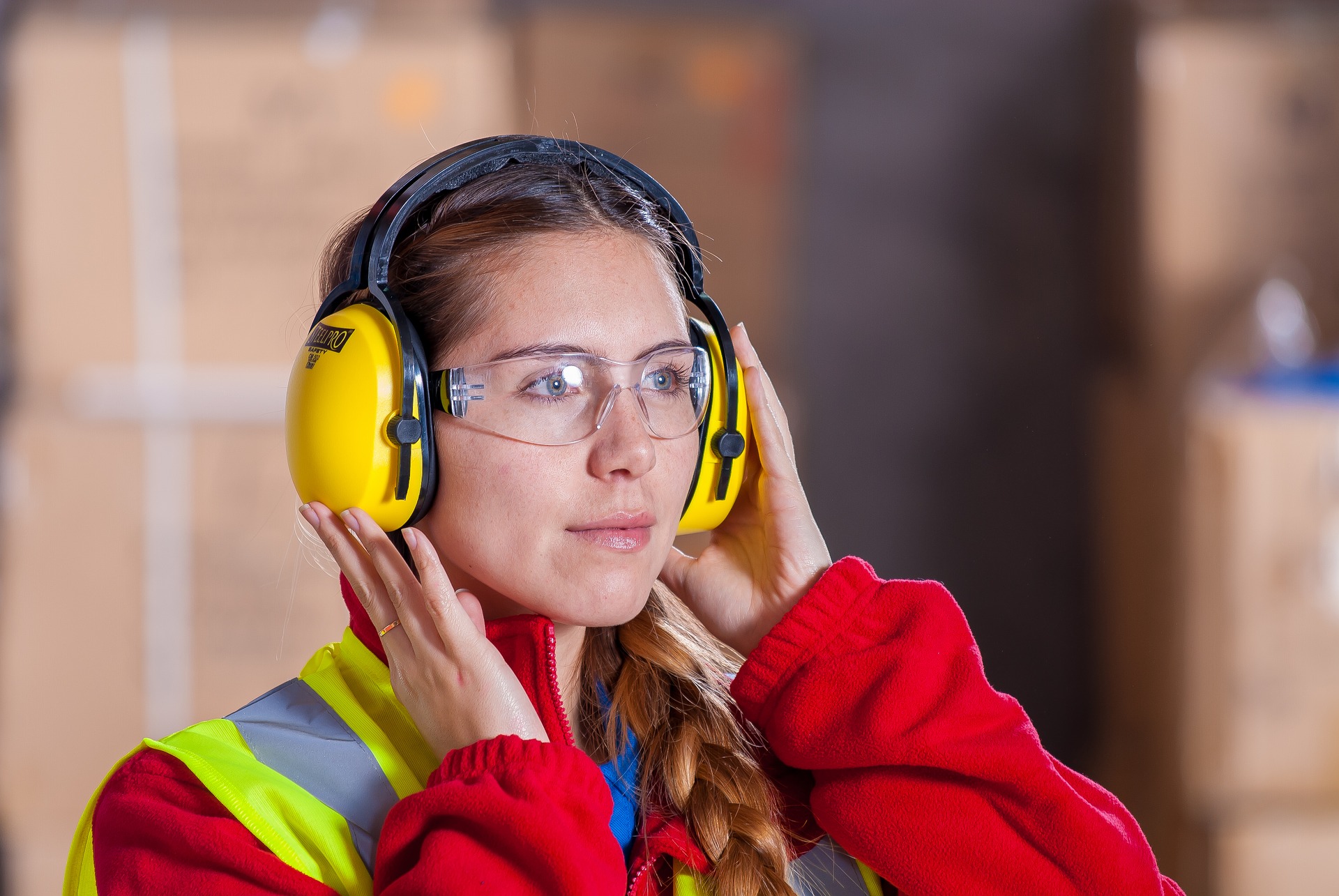 2. Risk Assessment
2. Risk AssessmentIf it’s not possible to work from home, before you return to your normal workplace your employer is required to undertake a risk assessment to check whether the environment is ‘COVID–secure’. A risk assessment is a legal requirement for all employers and it will explain what they must do to keep their workers and anybody else who may use their workplace(s), safe from harm. They must be ‘adequate’, ‘suitable and sufficient’ and not a cursory inspection. Employers must identify all those for whom they have a duty of care, whether they are staff or service-users, who are classed as being at increased risk from COVID-19. Your employer’s risk assessment should identify what hazards currently exist or may appear in the workplace. It defines which workplace hazards are likely to cause harm to employees and visitors. Employers must also set out the measures they will take to address the hazards they have identified. COVID-19 is a hazard that may cause you harm. Employers must therefore put in place measures to prevent its spread. The government has provided guides covering a range of different types of workplace and how to make them COVID-secure. The guidance for England can be found HERE (separate guidance is available for Wales, Scotland and Northern Ireland).Individuals who are at risk and cannot work from home should be offered the option of the safest available on-site roles.
What if I feel unsafe returning to my workplace?
 You should never be in a situation where you might endanger yourself and others in the course of doing your job. If an employer were to put you in that situation, it is potentially a breach of health and safety law.
You should never be in a situation where you might endanger yourself and others in the course of doing your job. If an employer were to put you in that situation, it is potentially a breach of health and safety law.
If you are still being asked to return to your workplace and believe you are at risk, in the first instance, it is important to talk to your employer.
If you are unable to reach a satisfactory agreement from discussions with your employer you may wish to raise your concerns with union safety representatives, or ultimately with the organisation responsible for enforcement in your workplace, either the Health and Safety Executive or your local authority.
As a last resort, if a person reasonably believes there is a risk of being exposed to serious and imminent danger in their working environment and it cannot reasonably be avoided, every employee has the right not to suffer detriment if they leave, or refuse to attend their place of work (section 44 of the Employment Rights Act 1996). The context of a situation will be key on whether refusing to return to work or any other steps are considered appropriate. This means that an employee cannot automatically refuse a reasonable instruction to return to work without a good reason.
LUPUS UK is proud to be a part of RAIRDA – the Rare Autoimmune Rheumatic Disease Alliance. RAIRDA has issued a letter for employers to help support people living with lupus who want to stay safe at work. Download the letter HERE.
What if the problem is related to public transport?
Let your employer know if you’re struggling or unable to get to work safely because of changes to public transport services or difficulty maintaining safe social distance during your commute.
In many cases it would be considered a reasonable adjustment for your employer to agree to flexible working hours (allowing safer access to public transport), access to free parking or consider providing private transport (for example, taxi).
Unfair treatment and dismissal
 An employee or worker is protected by law against unfair treatment and dismissal, if it is because of:
An employee or worker is protected by law against unfair treatment and dismissal, if it is because of:
– pregnancy
– age
– a health condition that is considered a disability under the Equality Act 2010
It does not matter how long someone has worked for the employer.
It could be unlawful discrimination on the grounds of pregnancy, disability or age if an employer either:
– unreasonably tries to pressure someone to go to work
– unreasonably disciplines someone for not going to work
Where can I go for help?
If you are experiencing financial uncertainty and hardship as a result of changes to your employment, we have provided information about various sources of support, HERE.
If you require expert advice relating to your personal circumstances, please contact one of the organisations below:
Acas
You can get advice on your specific situation and your employment rights by visiting the Acas website or calling the Acas helpline, 0300 123 1100.
Citizens Advice
You can get information about your rights and guidance relating to your situation from your local Citizens Advice. Find your local centre HERE.
What do I do if I suspect I have symptoms of coronavirus?
If you have any of the main symptoms of COVID-19, even if they’re mild:
 1. Take a lateral flow test (LFT) to check if you have COVID-19 as soon as possible. If you are eligible for the COVID-19 treatments, you should have been provided with some free of charge. If you are not eligible, you may now need to buy a test (depending which nation you live in and their current rules).
1. Take a lateral flow test (LFT) to check if you have COVID-19 as soon as possible. If you are eligible for the COVID-19 treatments, you should have been provided with some free of charge. If you are not eligible, you may now need to buy a test (depending which nation you live in and their current rules).
2. Stay at home and away from others. It is recommended that you self-isolate for at least five days and avoid meeting people at higher risk from COVID-19 for 10 days.
DO NOT go to a GP surgery, pharmacy or hospital. Call 111 if you need to speak to someone.
Also DO NOT make any changes to your prescribed lupus medications unless directed to do so by your lupus consultant.
If you are confirmed to have contracted coronavirus (COVID-19), you may be advised by your consultant to temporarily stop immunosuppressive medications until the infection has cleared. This should only be done in consultation with your rheumatology team.
The NHS has produced some guidance about looking after yourself at home if you have symptoms of coronavirus – HERE.
You should call 999 or go to A&E immediately if:
- You are so breathless that you are unable to say short sentences when resting.
- your breathing has got suddenly worse.
- you cough up blood.
- you feel cold and sweaty, with pale or blotchy skin.
- you have a rash that looks like small bruises or bleeding under the skin and does not fade when you roll a glass over it.
- you collapse or faint.
- you feel agitated, confused or very drowsy.
- you have stopped peeing or are peeing much less than usual.
Treatment for coronavirus
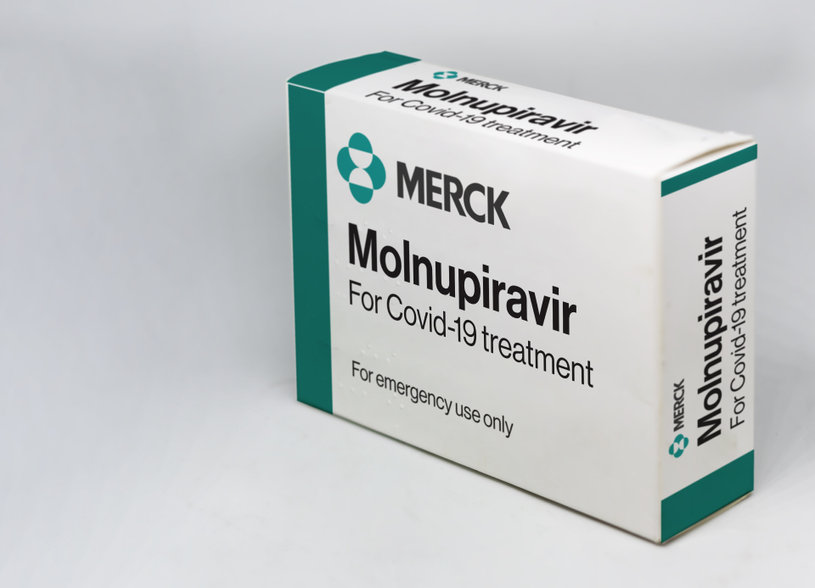 Many people with lupus are now eligible for COVID-19 treatments through the NHS, if they are considered to be in the highest risk group for severe illness. Letters (like this) are being sent to people who are eligible. These include monoclonal antibody infusions and antiviral tablets. You can learn more about this in our article HERE.
Many people with lupus are now eligible for COVID-19 treatments through the NHS, if they are considered to be in the highest risk group for severe illness. Letters (like this) are being sent to people who are eligible. These include monoclonal antibody infusions and antiviral tablets. You can learn more about this in our article HERE.
What about hydroxychloroquine?
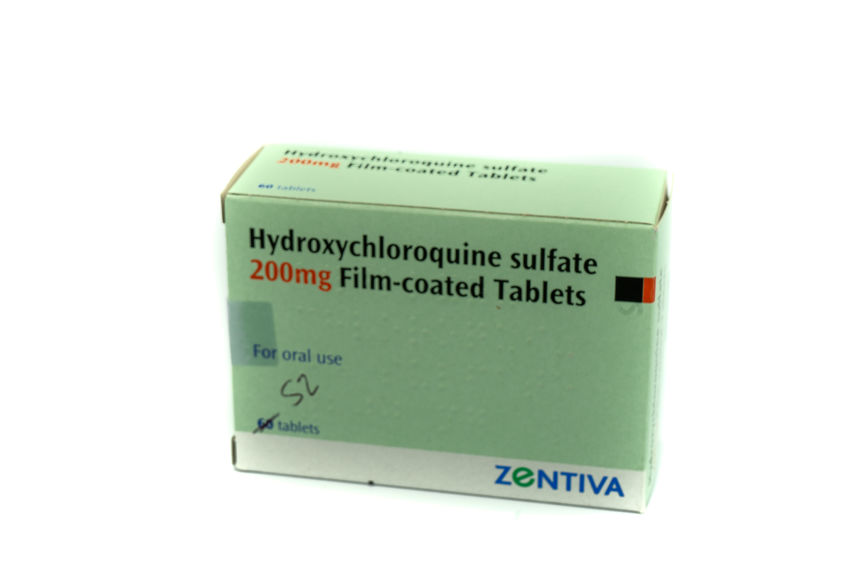 Unlike immunosuppressants, hydroxychloroquine is known as an immunomodulatory drug and is unlikely to limit your body’s response to infection.
Unlike immunosuppressants, hydroxychloroquine is known as an immunomodulatory drug and is unlikely to limit your body’s response to infection.
There has been interest in this medication as a possible treatment for the coronavirus (COVID-19). On 5th June 2020, the Chief Investigators of the Randomised Evaluation of COVid-19 thERapY (RECOVERY) Trial on hydroxychloroquine published a statement. They concluded from the trial that there is “no beneficial effect of hydroxychloroquine in patients hospitalised with COVID-19”.
Patients with lupus who are already prescribed hydroxychloroquine should continue taking it. Those who are not on hydroxychloroquine will only be advised to take it by their doctor if it is needed for treatment for their lupus.
You can read more about lupus, hydroxychloroquine and COVID-19 in our article HERE.
Should I stop taking my lupus medication(s)?
 It is advised that you DO NOT make any changes to your prescribed lupus medications in an attempt to reduce your risk of contracting the virus. It is important to remember that if your lupus becomes active then this may also increase your risk of picking up infection.
It is advised that you DO NOT make any changes to your prescribed lupus medications in an attempt to reduce your risk of contracting the virus. It is important to remember that if your lupus becomes active then this may also increase your risk of picking up infection.
If you are concerned that you have developed symptoms of the coronavirus then please take advice from your rheumatologist regarding what medication is safe to continue.
Should I still attend medical appointments?
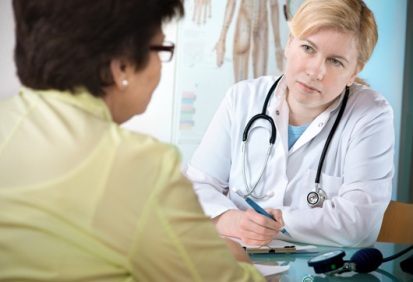
Untreated or undertreated lupus can be serious. It is important that you continue to be treated and monitored appropriately throughout the pandemic and that you seek medical advice if you are concerned about your disease.
If you have a scheduled medical appointment then it is very important for you to attend.
It is very important for you to contact your GP or rheumatology team if you are experiencing a worsening of your disease. By avoiding medical care you could increase your risk of a serious lupus flare.
If you are anxious about attending an important appointment, please discuss with them the precautionary measures they have in place, to reassure you. Many hospitals have a separate rheumatology department where patients can be seen, rather than having to attend the main outpatient’s department.
If you are concerned about your lupus, by contacting your rheumatology team it won’t necessarily result in an automatic face-to-face appointment. Clinicians may initially assist remotely, where this is appropriate.
Should I be taking vitamin D supplements?
 During the autumn and winter months it is generally advised that people living in the UK should take a supplement of vitamin D every day to support general health and in particular, for bone and muscle health. Many people with lupus may already be taking vitamin D supplements because of reduced sun exposure and/or steroid treatment.
During the autumn and winter months it is generally advised that people living in the UK should take a supplement of vitamin D every day to support general health and in particular, for bone and muscle health. Many people with lupus may already be taking vitamin D supplements because of reduced sun exposure and/or steroid treatment.
If you do not currently take a vitamin D supplement, you may wish to discuss this with your GP. These can often be prescribed for people with lupus due to the increased risk of deficiency.
Should I wear a face covering?
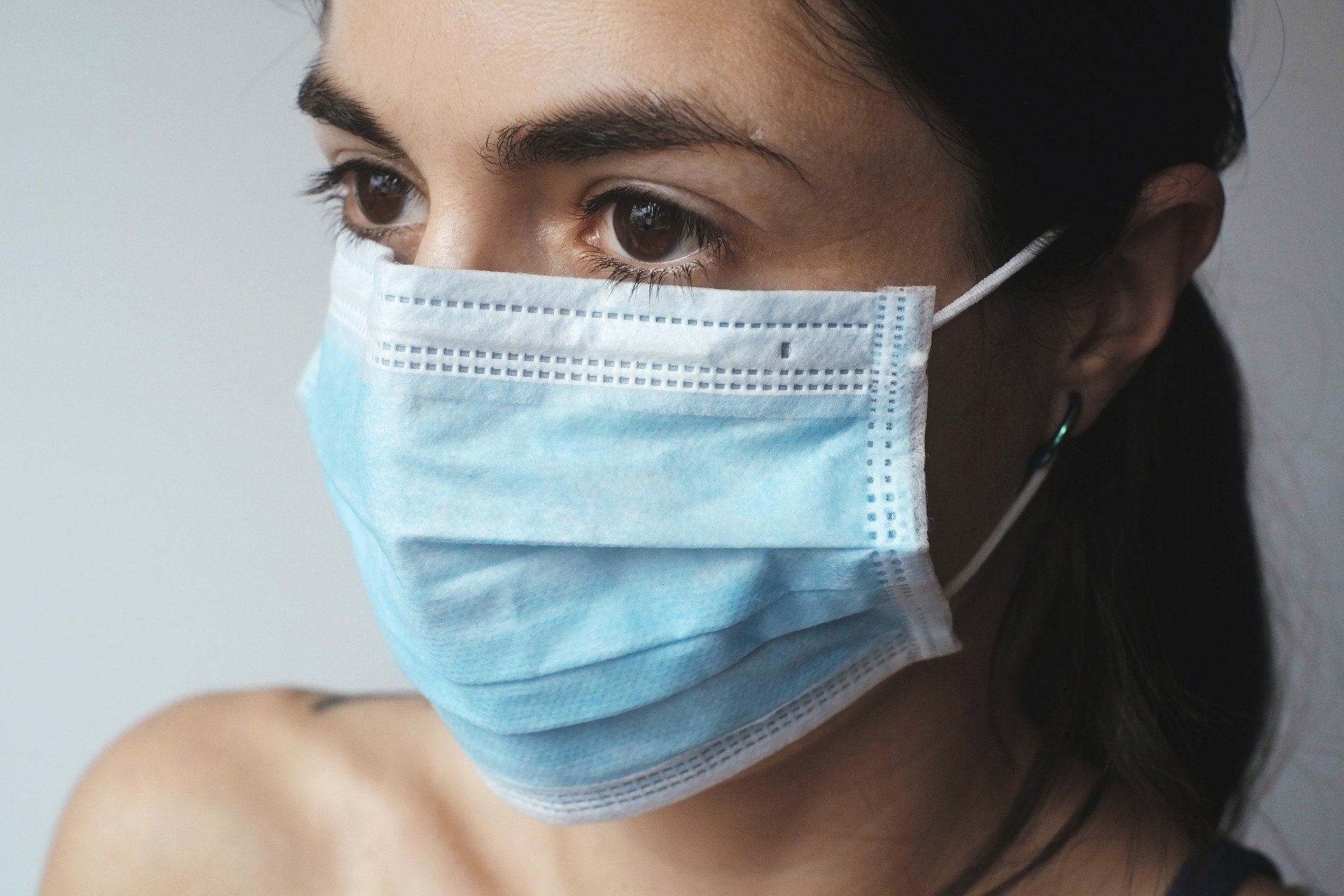 Wearing a face covering may reduce the risk of spreading infection by protecting people you come into contact with. Combining precautionary measures such as face coverings, social distancing and handwashing gives us the best chance of reducing the spread of COVID-19.
Wearing a face covering may reduce the risk of spreading infection by protecting people you come into contact with. Combining precautionary measures such as face coverings, social distancing and handwashing gives us the best chance of reducing the spread of COVID-19.
If you can, you’re encouraged to wear a face covering in enclosed spaces or when you come into contact with people you do not normally meet. The rules concerning face coverings are different in each nation. For the full guidance on face coverings where you live, take a look at the links below:
Most people with lupus can manage to wear a face mask and shouldn’t worry if they need to wear one. Wearing a mask does not reduce a person’s oxygen supply or cause a build-up of carbon dioxide.
Face coverings can make breathing feel less comfortable. This is mostly because they trap heat. In cooler weather, and in places with air conditioning, wearing a face covering might feel easier.
A diagnosis of lupus doesn’t make you exempt from wearing a face covering. However, in some circumstances someone with lupus may be exempt, for example;
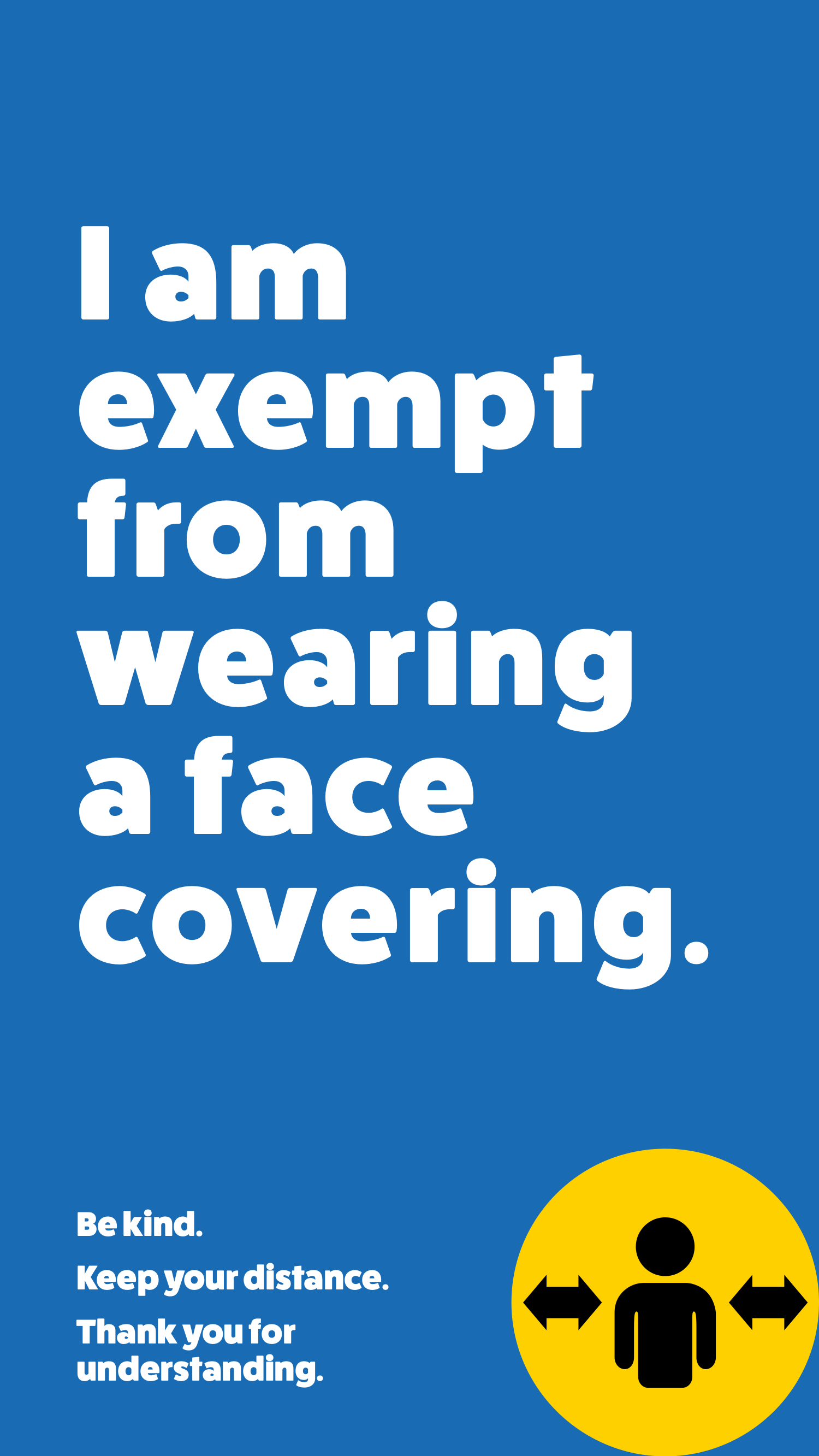 If the person has lung involvement and finds wearing a face covering makes them feel too breathless.
If the person has lung involvement and finds wearing a face covering makes them feel too breathless.- If the person has very sensitive skin on their face which becomes significantly irritated by a face covering.
If you are exempt from wearing a face covering, the Government has produced an official exemption notice for mobile phones and a print-out card and badge – HERE.
The Hidden Disabilities Scheme has produced lanyard cards for people who are exempt from wearing a face covering. These are available HERE.
It is very important that you wash your hands before putting on and taking off your face covering and that you refrain from touching it with unclean hands.
 We have all had to adopt significant changes to our lifestyles as a result of the COVID-19 pandemic. For many people with lupus and associated conditions this includes spending a lot more time at home and keeping a safe distance from other people.
We have all had to adopt significant changes to our lifestyles as a result of the COVID-19 pandemic. For many people with lupus and associated conditions this includes spending a lot more time at home and keeping a safe distance from other people.During this unusual and stressful time it is perfectly natural to feel overwhelmed. It is important that you continue to look after your physical and mental well-being.
For information and advice on looking after your well-being, take a look at our article HERE.
If you have more questions about the coronavirus, try reading:
NHS: answers to common questions about coronavirus
ACAS: Coronavirus – advice for employers and employees
We are extremely grateful to Dr Chris Wincup (Senior Clinical Research Fellow at University College London), Professor Chris Edwards (Consultant Rheumatologist, University Hospital Southampton) and Dr John Reynolds (Clinical Senior Lecturer in Rheumatology at Queen Elizabeth Hospital, Birmingham) for their assistance in the production of this article.
This article will be updated as new information and guidance becomes available.

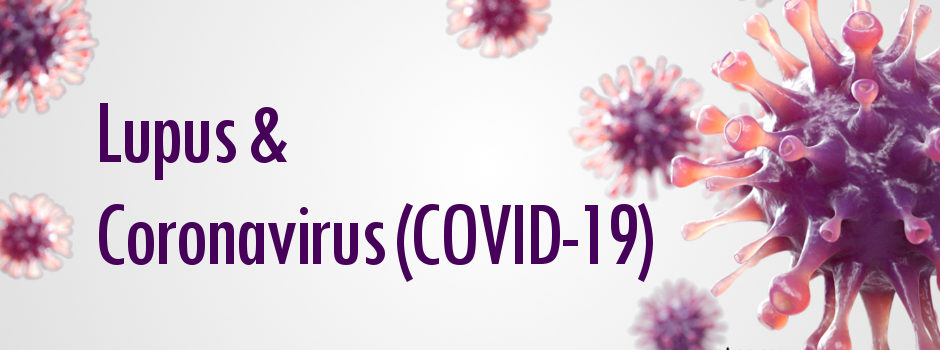

 ©2024 LUPUS UK (Registered charity no. 1200671)
©2024 LUPUS UK (Registered charity no. 1200671)